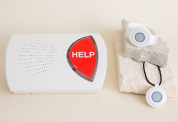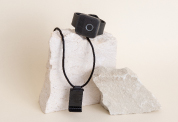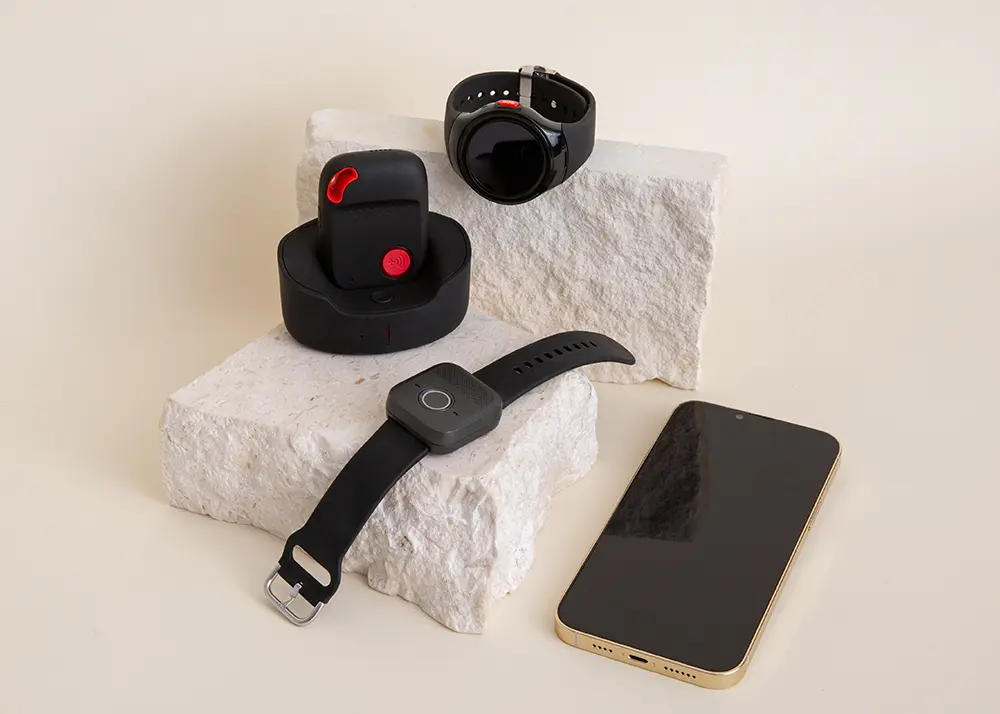Keeping Seniors Safe Behind the Wheel
September 9, 2019
When loved ones begin to experience faltering health, you might be concerned about their ability to drive safely. Some seniors are able to drive well into their 80s, but more often they can experience issues such as vision problems, slower reaction time, and even sluggish mental acuity as they age. If you are a concerned child or caregiver to a senior, you may want to keep an eye on their driving and be ready to talk about what signs will indicate when they need to turn in their car keys.
Failing eyesight
Eyesight of course means everything in driving. Up to 95% of all sensing clues in driving come through the eyes, which tend to weaken as we age. This can lead to delayed responses to signals, signs, traffic events, and anything else that might pop up. Night vision begins to fail between the ages of 40 and 60 and by age 70, peripheral vision can also begin to decline. If your senior shows any signs or symptoms of failing eyesight, be sure and get them to an eye doctor and start the conversation about their ability to see well enough to drive safely.
Slower Reaction Time
Slower reaction times on the streets and roads could increase a senior’s chance of getting into car accidents. Statistics show that our reaction times definitely slow down as we age. What this means is that older drivers may have trouble assimilating all of the information they receive when behind the wheel, such as when they approach a four-way stop or when someone cuts them off on the highway. Responding quickly requires quick reflexes and reactions, and this ability may not be as sharp as it once was.
Self-Rating Tool
At times, you may have pushback from your senior when it comes time to talk about surrendering their keys. They may disagree with you in an attempt to keep their independence. To help out in such a situation, the Senior Driving division of AAA provides an online Self-Rating Tool for seniors to evaluate their own driving skills. This may be helpful in moving the conversation away from conflict and more toward resolution. If you are having trouble talking to your senior about this issue, perhaps this tool could help convince them.
Meanwhile, if your senior still insists on driving, then there are many products on the market that can help in keeping them safer. Various aftermarket automobile enhancements and technology devices are designed to keep drivers safe at any age.
Smart Car Technologies

Smart car (HUD) concept. Empty cockpit in vehicle and Self-Driving mode car screen .
Nowadays our cars are smarter than we are at times. With features such as backup cameras, blind spot warnings, GPS navigation, and antilock brakes, any driver is going to be safer when behind the wheel. Ever developing technology that enhances our lives also keeps improving the handling of vehicles, which can keep all drivers safer on the road.
Self-Driving Cars
A game-changer for all of us, self-driving cars are becoming a reality. The technology that allows a car to drive its passenger will also change the game for seniors as we move into the future. A self-driving car will allow seniors to age in place longer without having to give up their independence or their ability to get where they need to go.
Multiple Delivery Services
Thanks to computers and mobile communications, new delivery services such as UberEATS, Door Dash, Lyft, and online grocery delivery are changing the face of how we all live. Need a ride to the airport? Call Uber or Lyft. Need to order groceries but can’t get out because of your walker or wheelchair? Go online and order from your local grocery store or Amazon, and schedule when you would like your groceries delivered to your door. All of these services are a boon to the senior community.
In-Car Medical Alert Systems
Companies such as Bay Alarm Medical offer an in-car medical alert system, which is a real-time emergency alert button that contains a GPS locator and crash detector. This system allows tracking of the car’s location and also stores medical records so that first responders know how to provide prompt and effective medical care if necessary. The Splitsecnd life alert system is the first ever medical alert device designed for automobiles, which makes it ideal for seniors who are still driving. It plugs into a 12V outlet and is equipped with a sensor that detects a crash and immediately notifies and dispatches emergency responders to the exact location.
Keeping seniors safe behind the wheel can be challenging, but it can be done with the right planning and the appropriate tools. Talk to your loved one about driving safety and what options would be best for them as they age – it may be a difficult conversation, but it will be worth it in the end if it keeps them safe.
We thought you might also like:
How Self-Driving Cars Could Improve Seniors’ Quality Of Life









